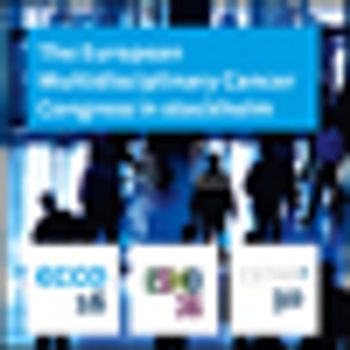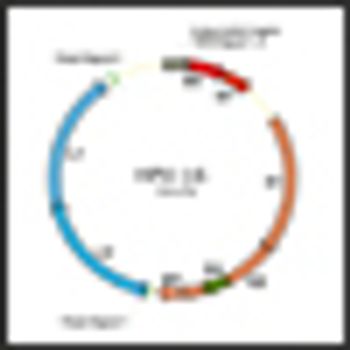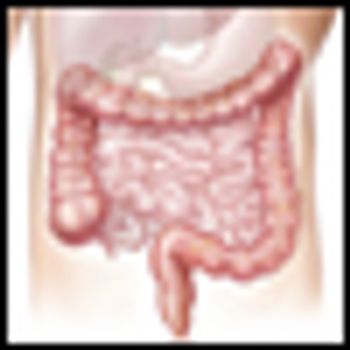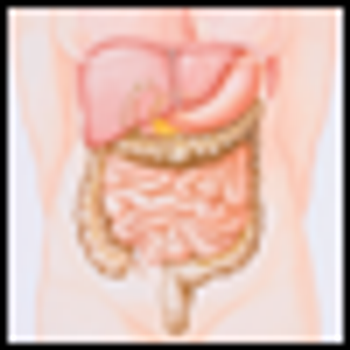
Treatment for patients with locally advanced, resectable rectal cancer has clearly evolved, with significant refinements in preoperative assessment, surgical technique, and use of preoperative chemoradiation.

Your AI-Trained Oncology Knowledge Connection!


A multi-institutional, NCI-funded retrospective study in the New England Journal of Medicine highlights the significant long-term benefit of colonoscopic polypectomy in preventing death from colon cancer, with polypectomy cutting the incidence of colon cancer–related mortality in half compared with the general population.

Treatment for patients with locally advanced, resectable rectal cancer has clearly evolved, with significant refinements in preoperative assessment, surgical technique, and use of preoperative chemoradiation.

The exact role of combined-modality therapy and TAE of rectal cancer remains to be defined. Certainly the stakes are high, as studies have shown that the recurrence of locally excised rectal cancer is associated with worse long-term survival outcomes.

Advances in the treatment of rectal cancer, such as TME and CMT, have lengthened survival time and enhanced the quality of life. However, radiation therapy may have a negative impact on quality of life, especially in males. Future research needs to focus not only on survival but also on postoperative quality of life.

Blase Polite, MD, assistant professor of medicine at the University of Chicago and the track leader for the GI Colorectal Scientific Program Committee at ASCO, discusses the latest research in the field of colorectal cancer.

David Ryan, MD, discusses his debate with Paul H. Sugarbaker, MD, from the ASCO session “Intraperitoneal Chemotherapy and Cytoreductive Surgery in Colon Cancer” and how in his view this type of treatment, as presented to the patient, creates a certain dynamic between the surgeon and medical oncologist, one of hope vs reality.

This phase I/II trial assessed the efficacy of mFOLFOX6 with either BIBF 1120, an oral anti-angiogenesis agent, or with bevacizumab, an anti-angiogenesis antibody, in chemotherapy-naïve patients with metastatic colorectal cancer (mCRC). Patients were randomized 2:1 to the BIBF 1120 and bevacizumab arms, respectively.

A study published in Lancet Oncology shows that an AS04-adjuvanted HPV 16 and HPV 18 vaccine developed by GlaxoSmithKline Biologicals can offer protection against anal cancer.

The review of surgical management of neuroendocrine tumors (NETs) of the gastrointestinal tract, authored by Huang, Poultsides, and Norton, is both comprehensive and accessible for readers of all backgrounds.

This article reviews the surgical management of gastrointestinal neuroendocrine tumors, including the preoperative control of hormonal symptoms, extent of resection required, postoperative outcomes, and differing management strategies as determined by whether the tumor has arisen sporadically or as part of a familial disorder, such as multiple endocrine neoplasia type 1.

Tumors of neuroendocrine origin arising from the pancreas, luminal gastrointestinal tract, and other tissues differ greatly in their malignant potential.

A fairly simple and inexpensive fecal occult blood test (FOBT) that detects blood cells in a person's stool sample has been found to be an effective way to screen for colon cancer. The prospective, 2796 asymptomatic participants from Taiwan participated in the study that was published only on August 2, 2011 in the Canadian Medical Association Journal (DOI:10.1503/cmaj.101248).

In the majority of cases, hepatocellular carcinoma develops in the setting of cirrhosis. Treatment with curative intent is possible in only 20% to 25% of cases and consists of resection or liver transplantation.

In this article, we review the data surrounding the use of chemotherapy (CT) and chemoradiotherapy (CRT) in patients with resectable pancreatic cancer.

In their article “Liver Transplantation for the Treatment of Hepatocellular Carcinoma," Drs. Hanish and Knechtle provide a cogent review of many of the issues surrounding the management of hepatocellular carcinoma (HCC) in patients with cirrhosis.

Hepatocellular carcinoma (HCC) remains a formidable challenge in the United States due to its increasing incidence, its advanced-stage presentation, and its association with chronic liver disease.[1-3]

Progress in the care of mCRC has occurred relatively rapidly, but current methods of management have placed a significant economic burden on the healthcare system.

Advances in the multidisciplinary management of metastatic colorectal cancer have improved survival considerably, and nurses are key to optimal patient care.

In this issue of ONCOLOGY, Golan and Javle provide an excellent update on targeting the insulin-like growth factor 1 receptor (IGF-1R) in gastrointestinal cancers.

In this issue of ONCOLOGY, Golan and Javle present a timely review of the current status of the insulin growth factor-1 receptor (IGF-1R) signaling pathway as a therapeutic target, with a specific focus on gastrointestinal (GI) cancers.

This review highlights the current status of the research in targeting the insulin growth factor pathway with a specific focus on gastrointestinal cancers.

In North America, hepatocellular carcinoma (HCC) is one of only a few malignancies with an increasing incidence in recent years.[1]

The diagnosis and treatment of hepatocellular carcinoma (HCC) constitute a complex and challenging clinical paradigm.

In July1999, I learned I was pregnant with my son. My sister was pregnant, too, and due to deliver in the fall. I was excited to share my happy news. But my father, then 65, had news of his own: he had been diagnosed with stage III colorectal cancer.

In this review article we will discuss the current data on, and future role of, sorafenib in the treatment of hepatocellular carcinoma beyond Child-Pugh A cirrhosis, in conjunction with local therapy, and in a transplant setting.

Colorectal cancer is one of the most commonly diagnosed cancers in the US, and it is the second leading cause of cancer-related deaths. The risk of developing colorectal cancer increases with age.